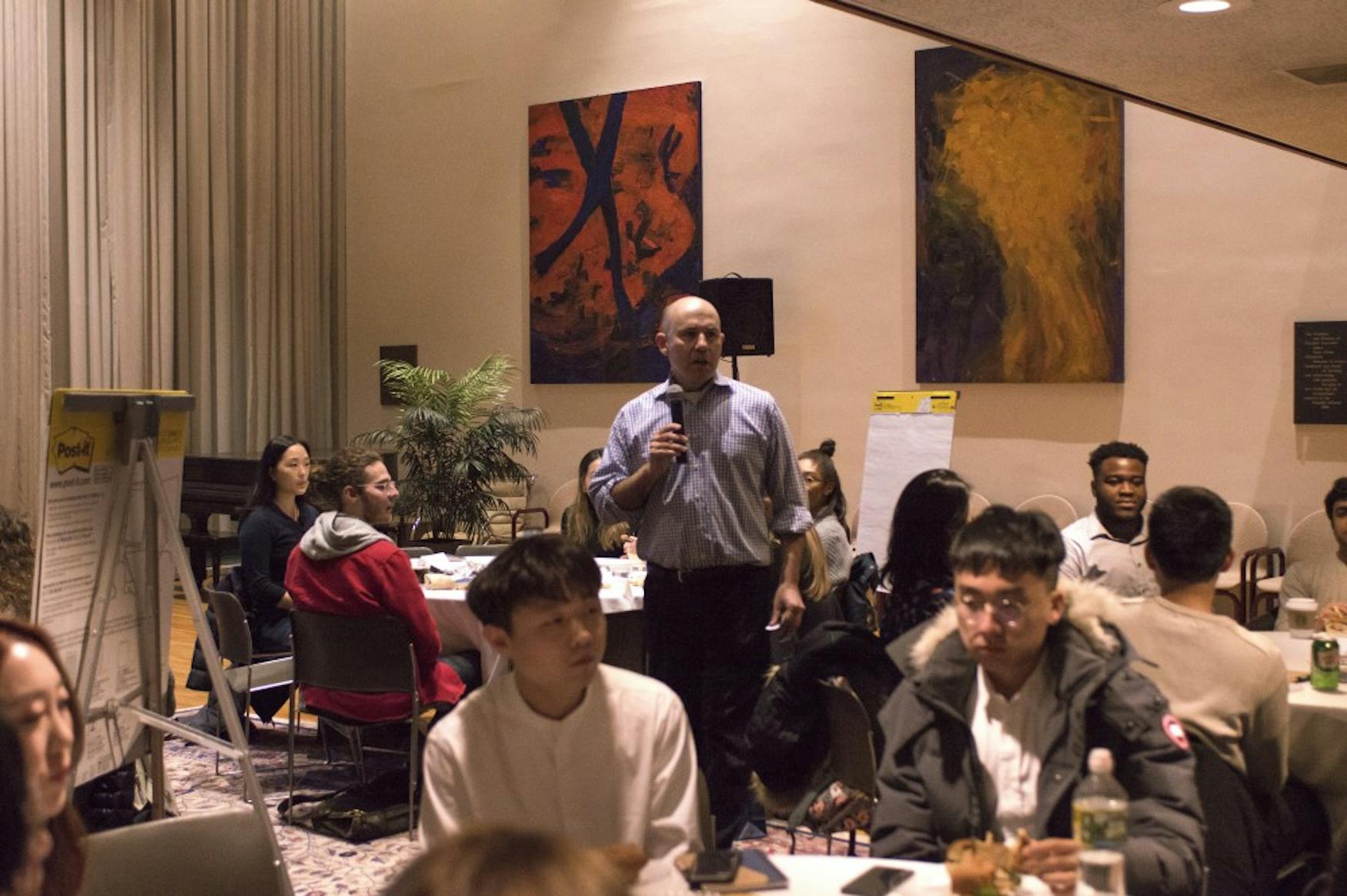Speakers map out routes to success in college, workforce
Prof. Andy Molinsky (IBS) and Brandeis Visiting Scholar Sheila Pisman led an interactive workshop for members of the Brandeis community on searching for careers as a recent college graduate. Titled “Advance: A Career Roadmap for Ambitious Young Leaders,” the workshop focused on the key challenges and concerns plaguing recent graduates entering the workforce and proposed future programs highlighting steps that can be taken to alleviate these issues.
Molinsky, the director of the Perlmutter Institute for Global Business Leadership, began the event by explaining that his goal was to shed insight on the concerns of recent graduates entering the workforce and to address those concerns proactively.
Molinsky also mentioned that he is working on a podcast called “From the Dorm Room to the Board Room,” which will help graduates be prepared for the professional world by highlighting that currently “there is a gap” between the skills that students need for college and the skills required for the workforce; the podcast intends to supplement the necessary skills. Molinsky thinks that “young professionals often struggle to make [the] transition” from college to a career because they don’t feel prepared for the rigor of the workforce. As a result, “companies can be unimpressed by the readiness of graduates,” making it more difficult for recent graduates to succeed in the workforce.
In his podcast, Molinsky will attempt to address these mismatched expectations in three stages. First, he will seek to explain why young professionals are struggling to find jobs. He will then examine the differences between university and workforce cultures. Finally, he hopes to provide insight “to help students and companies alike better bridge that gap.”
In the workshop, Pisman spoke about differences in how students receive feedback in school and at companies. In college, students get feedback from grades. However, in the workforce they must take initiative and “learn how to seek feedback”; doing so is critical to their professional growth.
Another difference Pisman explained is that college culture is supportive of students who experiment and make mistakes, whereas “generally the culture of work is much less supportive” of people making mistakes, which can have severe consequences when working with clients. You are accountable mostly to yourself in college, she said. In the workforce, you are accountable to “many stakeholders” — including your boss and clients.
Pisman also noted that in college, students interact primarily with people their age who are often from “similar backgrounds.” She sees this as a contrast to the workforce, where it is important to learn how to “strategically connect with … people of different ages and backgrounds.”
Pisman is working with Molinsky on creating a Brandeis Leadership Academy, which will be a “week-long, intensive summer program” that will prepare Brandeis students with the “skills, tools and knowledge to feel much better prepared” to begin their careers.
The second section of the workshop focused on unpacking the issue of post-collegiate readiness in small groups. At one table, Melissa Darling ’16, an investment associate at PanAgora Asset Management, Nathan Feldman ’14, a business development associate at Capstone, and Alice Lin, a corporate talent analyst at Liberty Mutual, discussed different ways to ease the transition from college to the workforce. Darling explained that she thinks it’s best to bring “your own personality” to the workplace, since authenticity can help one fit in to professional settings. Feldman added that in “the working world” it is important to “build up credibility” by showing that one has the best interests of the company in mind. Lin explained that “sharing the impact of your work” is key to building relationships in the workforce, as it demonstrates how one’s efforts are contributing to the company’s overall success.
Molinsky explained that it is important to focus on building your network and “collecting skills” pre- and post-graduation, so as to become a well-rounded applicant.



Please note All comments are eligible for publication in The Justice.